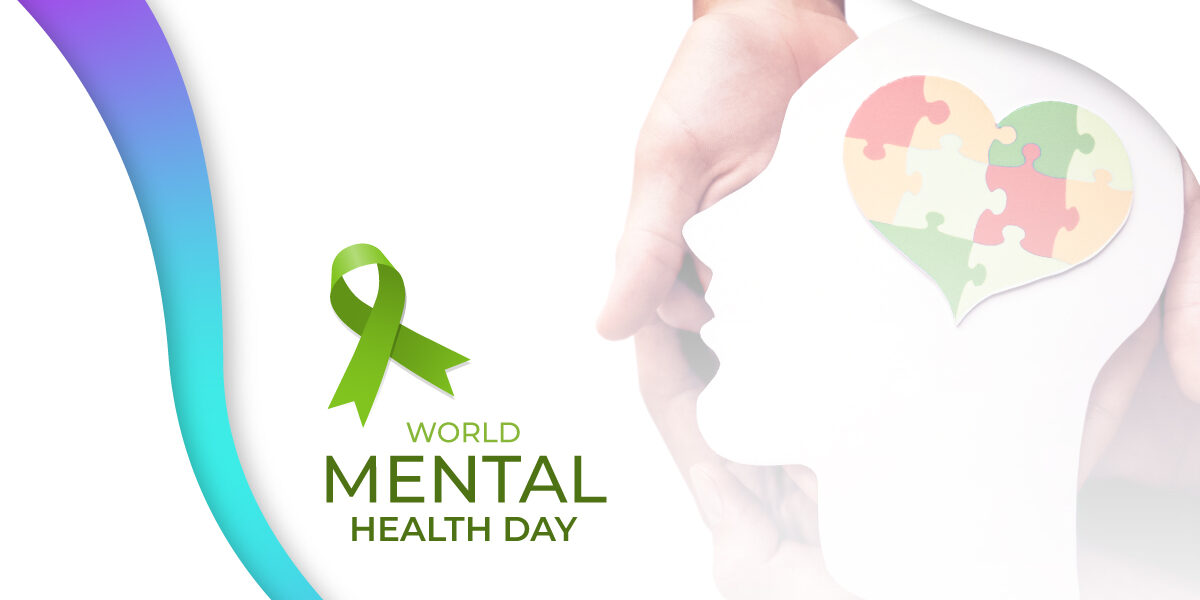Caring for personal and collective mental health is a legitimate issue even under ideal conditions for life in better times, whereas today in a time of post-covid pandemic, threatened environment, frightening climate change and global economic crisis and uncertainty, the alarm for intensifying care for mental health is red.
The WHO announced that one in eight people in the world suffer from mental problems, and the pandemic has raised that number by 25% globally. Not to mention the fact that in economically poorer countries such as ours, people with mental problems do not receive adequate care, but on the contrary – they are stigmatized. That’s why these global attempts to actualize mental health are more than welcome in our society as well, and we should all collectively be aware that every person more or less encounters problems of a psychological nature in life – every person on daily basis is exposed to stressful circumstances which can or cannot be influenced, and mental health is a determinant of how one deals with stress and the choices he / she makes.
Every day should be a mental health care day!
Mental health is a concern that should be given as much attention in everyday private or professional life as we give to our overall health. There are specific indicators that warn that your mental health needs attention and care that you can provide yourself. Conditions of weakness, insomnia, increased anxiety, difficulties in concentration or focus, intensified feelings of sadness, frequent colds or illnesses are all indicators that specific measures should be taken. Find time to relax, do something that truly fulfills you, make a change, take a day off from work and family responsibilities when you feel like you’re going to “burn out”, and ultimately if necessary – seek advice and help from a professional.
Mental health care is a kind of holistic response to taking care of overall psycho-physical health because it reduces the risk of certain diseases such as heart diseases (for which stress plays a huge role) or impaired immunity, and also improves well-being and mood, reduces anxiety, enables clearer thinking and deeper and quality relationships with family, friends and colleagues.
How to start taking care of your mental health?
Step by step. Here are some beginner strategies that anyone can incorporate into their everyday life:
- Quality and regular sleep – sleep is not only a condition for good physical health, but is also a main parameter for mental health.
- Be physically active – recreational or sports activity reduces stress, improves mood, contributes to better sleep, helps in dealing with symptoms of depression and anxiety.
- Strengthen the relationships with the people who matter to you – strong, deep and meaningful relationships with the people who matter in your life have a positive impact on the mental health in many ways – they reduce loneliness, provide emotional support when is most needed and provide meaning and significance of certain segments in life.
- Find a hobby that will fulfill you. It would be best if that hobby involves using your hands, doing something with your hands: do garden, return to your old passion – painting, take online classes in sculpting or anything else that attracts and interests you. Find time to do something that makes you happy, even sing out loud every time you hear your song.
- Find a hobby that will fulfill you. It would be best if that hobby involves using your hands, doing something with your hands: do garden, return to your old passion – painting, take online classes in sculpting or anything else that attracts and interests you. Find time to do something that makes you happy, even sing out loud every time you hear your song.
- Eat well, regularly and drink enough water (> 2l/day) – eat plenty of fruit and vegetables along with foods rich in omega-3 fatty acids such as salmon. Dark green leafy vegetables especially protect the brain. Nuts, seeds, and legumes, such as beans and lentils, are also great brain foods. You can use vitamin supplements from the spectrum of B vitamins that are recommended for improving the function of the nervous system, as well as natural nutritional supplements, such as SENTIS+, which is a natural solution for reducing stress, exhaustion and fatigue.
- Make love. Sex and sexuality have positive effects on important aspects of life – physical and mental well-being, intellectual and sociological aspect, and of course emotional.
- Reduce your time spent on social media as much as you can. A large number of studies in recent years have proven the connection of social networks (Facebook and Instagram) with depression and anxiety, and even with more extreme forms of mental health disorders, primarily among younger population, but also among adults.
Do we live in a world of global mental health crisis is a question that is asked every year on the World Mental Health Day – 10 October, and this year’s global campaign focuses the answer on the topic of mental health and well-being for all to be a global priority.

